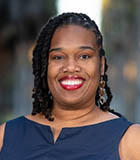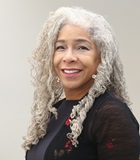Get to know the speakers for the Women’s Leadership Institute at APHA's 2024 Annual Meeting and Expo!
 Kaye Bender, PhD, RN, FAAN
Kaye Bender, PhD, RN, FAAN
Owner, Kaye Bender Consulting, LLC; Executive Director, Mississippi Public Health Association; Professor, University of MS School of Nursing and School of Health-Related Professions
Kaye Bender is an independent public health, organizational, and education consultant and strategist and the owner of Kaye Bender Consulting, LLC. She was appointed as the Executive Director of the Mississippi Public Health Association in May 2020. She was the President and CEO of the Public Health Accreditation Board from 2009-2019. She was the Dean of the University of Mississippi Medical Center School of Nursing for 6 years immediately before PHAB. Prior to that, she worked in local public health for several years in Mississippi and was the Deputy State Health Officer for the Mississippi Department of Health for 12 years. She chaired the Exploring Accreditation Steering Committee, the precursor study for the establishment of the Public Health Accreditation Board.
She is a board member of the National Board of Public Health Examiners; the Public Health Foundation; and the MS Public Health Institute. She is an active member of the American Academy of Nursing and served on its board from 2016-2019. She has numerous publications and presentations related to governmental public health infrastructure improvement.
 Charlene Cariou, MHS, CPH, CHES
Charlene Cariou, MHS, CPH, CHES
Community Health Manager, Southwest District Health
Charlene Cariou is an enthusiastic and self-proclaimed public health nerd looking to improve the health of individuals and communities and support the workforce that serves them. Professionally, she is a Community Health Manager with Southwest District Health, a regional Public Health District serving six counties in southwest Idaho. In this role, she leads the Community Health Team to identify community needs, implement programs to increase preventive health behaviors and change health outcomes, and evaluate our health impact across SWDH’s 6-county region. Charlene has 20 years of experience in healthcare and public health, working at both the state and local levels, and serving in volunteer leadership positions with state and national public health associations, including as an elected member of the APHA Executive Board and as Board Chair in 2023. Lastly, Charlene completed her Master of Health Science at Boise State University and is pursuing her Doctorate in Public Health Leadership at the University of Illinois Chicago. In her free time, you’ll find Charlene traveling, checking out a new restaurant, or enjoying a relaxing day at home with her family.
 Chris Chanyasulkit, PhD, MPH
Chris Chanyasulkit, PhD, MPH
Immediate Past President, American Public Health Association
Chris Chanyasulkit is an educator, public health practitioner, researcher, and advocate. Dr. Chanyasulkit is grounded in a strong belief in eliminating the structural barriers to equity for marginalized and underserved populations. Chris holds leadership positions with local, state, regional and national governance, and civic engagement organizations, working to promote racial, gender, and health equity. She served as a gubernatorial appointee to the Massachusetts Asian American Commission and the Commission on the Status of Women where she advocated for the needs of Asian Americans and Women throughout the Commonwealth of Massachusetts.
Dr. Chanyasulkit has served as a Human Services Specialist and Assistant Director of Diversity in the town of Brookline’s Office of Diversity, Inclusion, and Community Relations. She designed and delivered graduate public health courses at the Simmons University Department of Public Health. She also serves as an adjunct Assistant Professor at Temple University, where she teaches Public Health Advocacy in the College of Public Health. Chris earned a B.A. in Biology and Art History from Boston University, an M.P.H. (with a concentration in maternal and child health) from the Boston University School of Public Health, and a Ph.D. in Political Science from Northeastern University, where she conducted research on health disparities.
In addition to her advocacy and scholarly pursuits, Dr. Chanyasulkit is an elected Library Trustee of the Public Libraries of Brookline, a Brookline Community Emergency Response Team member, and a Brookline Medical Reserve Corps member. When not advocating for equity, Chris can usually be found reading a good mystery at home with her three kids, her husband, and their two puppies.
 Andrea Jenkins
Andrea Jenkins
Member, Minneapolis City Council
Andrea Jenkins is an American politician, writer, performance artist, poet, and transgender activist. She is known for being the first Black openly transgender woman elected to public office in the United States,[3] since January 2018 on the Minneapolis City Council and as the council's president from January 2022 to January 2024.
Jenkins moved to Minnesota to attend the University of Minnesota in 1979 and was hired by the Hennepin County government, where she worked for a decade. Jenkins worked as a staff member on the Minneapolis City Council for 12 years before beginning work as curator of the Transgender Oral History Project at the University of Minnesota's Jean-Nickolaus Tretter Collection in Gay, Lesbian, Bisexual and Transgender Studies.
 Raymona H. Lawrence, DrPH, MPH, CDE
Raymona H. Lawrence, DrPH, MPH, CDE
Founder & CEO, Dr. Raymona H Lawrence Coaching, LLC; Professor, Health Policy & Community Health, Jiann Ping Hsu College of Public Health, Georgia Southern University
Dr. Raymona H. Lawrence is the Founder and CEO of Dr. Raymona H Lawrence Coaching, LLC where she is a dynamic Keynote Speaker, Corporate Trainer, and Consultant. Her life's work and heartfelt mission is to challenge broken systems that keep people from reaching their highest potential. Therefore, she uses evidence-based principles of community engagement, Diversity, Equity, and Inclusion, and Psychological Safety to curate transformational change strategies within teams and companies.
Dr. Lawrence also delivers engaging and thought-provoking speeches and training to thousands of individuals across the United States and Globally. She has facilitated Diversity, Equity, and Inclusion and Psychological Safety training and consulted within companies such as Arbonne International, Rodan & Fields, Forma Therapeutics, the Georgia Council of Court Administrators, the National Association of Graduate Admissions Professionals (NAGAP) and Novo Nordisk.
Dr. Lawrence is highly intrigued by the breadth and depth of human difference and is passionate about helping individuals and organizations develop curated strategies to connect to diverse communities, customers, and team members. Dr. Lawrence has a doctorate in public health (DrPH), extensive training in community engagement, health disparities, and health inequities, has a Certificate in Diversity & Inclusion from Cornell University’s eCornell, is a Qualified Administrator of the Intercultural Development Inventory®, has a certificate in the Intercultural Conflict Inventory®, and holds the Certified Diversity Executive® Credential.
Dr. Lawrence was recently promoted to the rank of Full Professor of Health Policy & Community Health in the Jiann Ping Hsu College of Public Health at Georgia Southern University. Her main research focus is community engagement in rural, hard to reach populations-especially those with Sickle Cell Disease. Dr. Lawrence has been an investigator on numerous rural health and sickle cell disease-related grants. She is currently a dual principal investigator with Dr. Ify Osunkwo (now Payal Desai) on a $9.7 million Patient Centered Outcomes Research Institute (PCORI) grant entitled, Comparative effectiveness of peer mentoring versus structured education based transition programming for the management of care transitions in emerging adults with sickle cell disease. Dr. Lawrence is an award winning coach for the National Center for Faculty Development and Diversity. She also serves as the Director of Research for the Sickle Cell Community Consortium and as the Editor in Chief of the Journal of the Georgia Public Health Association.
 Jennifer Mandelbaum, PhD, MPH
Jennifer Mandelbaum, PhD, MPH
Mixed Methods Research Manager, athenahealth
Dr. Jennifer Mandelbaum is a social and behavioral scientist whose work highlights the use of data to tell stories that can improve public health and patient care. She has experience working across sectors (e.g., academia, government, industry) to understand and address root causes affecting issues of health care access and equity. As the Mixed Methods Research Manager at athenahealth, Dr. Mandelbaum leads survey and qualitative research to examine unique insights and emerging trends within the healthcare landscape. Cultivating the next generation of public health professionals is also important to her, and she is part-time faculty in Tufts University’s Department of Community Health. Driven by a dedication to public service, Dr. Mandelbaum recently assumed office in the New Hampshire House of Representatives, where she represents the Rockingham 21 communities of Portsmouth Ward 1 and Newington.
 Nandi Marshall, DrPH, MPH, CHES, CLC, CDE
Nandi Marshall, DrPH, MPH, CHES, CLC, CDE
Associate Professor, Department of Health Policy and Community Health, Associate Dean for Academic Affairs, Jiann-Ping Hsu College of Public Health, Georgia Southern University
Dr. Marshall is an associate professor in the Department of Health Policy and Community Health and associate dean for Academic Affairs for the Jiann-Ping Hsu College of Public Health at Georgia Southern University. Dr. Marshall holds a BA from Spelman College, an MPH from East Stroudsburg University, and a DrPH from Georgia Southern University. Dr. Marshall is also a certified health education specialist and a certified lactation counselor.
Dr. Marshall has over 19 years of community engagement experience including fostering partnerships and relationships with grassroots organizations, state coalitions, non-profits and national associations, particularly around health inequities. These experiences, along with her completion of the Georgia Governor’s Teaching Fellows Program and the Health Equity Leadership Institute (HELI), have contributed to her commitment to addressing the social determinants of health through community engagement, enhancing student leadership, and conveying the importance of achieving health equity. Dr. Marshall has also worked with both Rural and Urban populations to identify and address barriers in various community health issues.
Dr. Marshall has served as a member and leader in numerous public health organizations including the Society for Public Health Education (SOPHE) and the American Public Health Association (APHA). She has served as the Chair of the Science Board, Co-Chair for the Joint Policy Committee, as an Ex-Officio member of the Executive Board for the APHA, and is currently serving a four year term as a member on APHA’s Executive Board. Additionally, she served as the Education and Training Co-Lead for the Georgia Society for Public Health Education (GASOPHE) and currently serves as a member of the CRASH committee for the United States Breastfeeding Committee (USBC), which focuses on equity issues in breastfeeding and the USBC nominations committee, and as a board member for the Georgia Breastfeeding Coalition. Dr. Marshall also serves as a member of the Mayor’s Commission on Diversity and Inclusion (One Boro) in Statesboro, GA and the Racial Equity and Leadership (REAL) Savannah Taskforce in Savannah, GA.
Dr. Marshall has been a faculty member since Fall 2013 and has been involved in securing grants as a PI, Co-PI, and contributor in community-based programming and participatory research including a CDC (2018-present) Racial and Ethnic Approaches to Community Health (REACH) grant, Savannah H.O.P.E., on which she is a contributor leading the breastfeeding continuity of care initiative and a grant from the Georgia Department of Behavioral Health (2019-present) on which she is the PI to implement evidence-based programming in a Chatham County high school to prevent opioid use. Most recently, Dr. Marshall secured $3.25 Million in funding to assist disadvantaged students with financing their graduate public health degrees.
 Kris Rhodes, MPH
Kris Rhodes, MPH
Director, Office of Indian Affairs, Minnesota Department of Public Health
Kris Rhodes is Anishinaabe from Fond du Lac and Bad River. She is currently the Director of the Minnesota Department of Health’s Office of American Indian Health. She brings her decades of professional relationships along with an abundance of strategic and collaborative experience working to elevate the health of Native people with a focus on public health policy, systems, research, and evaluation across Tribal, academic, philanthropic, and non-profit organizations. She is a trusted leader and partner on Indigenous public health issues with the proven capacity to bring an idea into reality with efficiency and efficacy. Ms. Rhodes earned an MPH in Public Health Administration & Policy from the University of Minnesota School of Public Health and an undergraduate degree in Community Health Education from the University of Minnesota - Duluth. Her most important title remains Mom to two adult children: Tyler and Miigwan.
 Emma Rawson-Te Patu
Emma Rawson-Te Patu
Director, ManuKahu Associates, Indigenous Consultants; President, World Federation of Public Health Associations
From the tribal groups of Ngati Ranginui, Ngai te Rangi, Raukawa and Ngati Haua, in Aotearoa / New Zealand, Emma Rawson-Te Patu is director of ManuKahu Associates, Indigenous Consultants. Emma is also President of the World Federation of Public Health Associations, the first Indigenous woman to hold this role. Emma also holds the Policy and Advocacy portfolio in the Indigenous Working Group of the WFPHA. She is a Researcher/Trainer, experienced facilitator and proud health promoter. Emma has a Master of Philosophy with Honors (First Class) focusing on Institutional racism in Public Health. Emma is contracting to the WHO and recently a consultant to the New Zealand Human Rights Commission. Emma's passion is developing training and frameworks for dismantling institutional racism, supporting culturally responsive, human rights based public health approaches and socially/culturally conscious business strategy and organisational development. Emma is working on developing a global Indigenous public health institute in conjunction with broader Indigenous networks working in the global health space.
 Anasa Troutman
Anasa Troutman
CEO & Founder, The BIG We, LLC
Cultural strategist, writer, director, producer, philanthropist, & real estate developer, Anasa Troutman is a leader and a visionary focusing on the future of culture.
Working at the intersection of culture and the economy, Anasa is founder and leader of The Big We, Big We Foundation, Big We Capital, and Historic Clayborn Temple, home of the 1968 Sanitation Workers’ Strike in historically South, Black Memphis. Leaning into the future of social impact, her cultural wellness framework and culture shift methodology come together to cultivate safety, abundance joy for all through storytelling, public engagement, and strategic investment
A writer and producer by trade, Anasa has spend her life telling stories and finding ways for those stories to shape the way we see, experience, and interact with ourselves and each other. Starting in the music industry as Founder/CEO of EarthSeed Music, Creative Director/Producer for India.Arie and President of Arie’s SoulBird, Anasa has expanded her creative accomplishments to include writing and producing theater, film, tv, books, and podcasts
Through Culture Shift strategy model Anasa has taught thousands of artists, organizers, and leaders the power and practice of culture and narrative based social impact strategies. Anasa’s unique brilliance and beautiful heart has given her access to some of the country’s most important cultural, political & social justice spaces, providing strategic and creative support to leaders including; the Kellogg Foundation, The Highlander Center, The National Black Arts Festival, Kat Taylor, and Sony Music, and has been invited twice to the White House by the Obama administration to advise on cultural policy.
 Melody Tulier, DrPH, MPH, MCP
Melody Tulier, DrPH, MPH, MCP
Program Officer for the Transforming Health and Healthcare Systems, Robert Wood Johnson Foundation
Melody Esther Tulier joined the Robert Wood Johnson Foundation as program officer for the Transforming Health and Healthcare Systems theme, where she is focuses on developing strategy and implementing grantmaking shifting the goals of governmental public health and healthcare, addressing structural racism and other interlocking forms of oppression. Prior to her role at RWJF, she has developed and directed programs supporting New York City’s COVID-19 response, created, trained, and led program and organization-wide evaluation and learning efforts, conducted research in support of program development for county and federal government agencies. Melody holds a DrPH and MPH from the University of California, Berkeley, a MCP from the Massachusetts Institute of Technology, and a BA from Bryn Mawr College.

Deanna Wathington, MD, MPH, FAAFP
President-Elect, American Public Health Association
Deanna J. Wathington brings over 25 years of experience in public health, with a focus on collaborative community health initiatives. She is the clinical director at REACHUP, Inc., and an affiliate professor at the University of South Florida's College of Public Health. Previously, she served in leadership roles at Bethune-Cookman University and USF, and as the director of the Office of Minority Health for the Florida Department of Health.
Dr. Wathington serves on several national committees, including the Council on Education for Public Health, Advocates for Highway and Auto Safety, and the ASPPH Workforce Advisory Committee. She is also the executive director of the Consortium of African American Public Health Programs. Her work emphasizes health equity, maternal and child health, and expanding diversity in the health professions. She co-edited Black Women in Public Health: Strategies to Name, Locate, and Change Systems of Power and has received multiple awards, including the DHPE Health Promotion and Advocacy Award and the Florida Outstanding Woman in Public Health Award.




